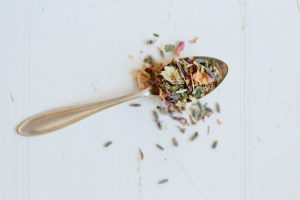The Naturopathic Co.

You're using an outdated browser. Please upgrade your browser to improve your experience.
Iron is one of the body’s essential nutrients, which is absorbed from the foods we eat.
Iron is required for normal cell and organ function, as it carries oxygen around the body via haemoglobin found in red blood cells.
After absorption, iron is transported by ferritin to specific sites for use. Iron is stored in the liver, spleen, and bone marrow. Haem iron from animal sources is absorbed more easily than non-haem sources, however both are absorbed more easily in the presence of vitamin C (particularly non haem).
Approximately 40% of iron in meat, fish, and poultry is haem iron and the rest is non-haem. Non haem iron is poorly absorbed (2-20%) and is both animal and plant derived.
Not only do we feel extreme fatigue when we are low in iron, but iron deficiency impairs both vitamin A (night blindness), and iodine metabolism too (needed for healthy thyroid; weight, hair thinning, fatigue, dry skin), so it can contribute to other health issues too.
The main food sources of iron are eggs, fish (salmon, sardines, tuna), liver, meat (beef, lamb, veal, pork), and leafy green vegetables.
For vegans and those who choose to avoid meat for ethical or religious purposes, iron stores can sometimes be low. Well-absorbed plant sources of iron should be consumed.
The best plant sources of iron are dried fruit (figs, apricots), quinoa, hemp seeds, chia seeds, pumpkin seeds, legumes, white potatoes, spinach, kelp, and spirulina.
Antacids have the potential to interfere with iron absorption, and zinc competes with iron so any zinc supplementation should be taken at least 2 hours away from iron.
Black tea, coffee, and wine reduce absorption of iron. Phytates (legumes, nuts, grains) also reduce iron absorption. Oxalates impair the absorption of non heme iron. Oxalates are found in foods such as spinach, kale, beets, nuts (/almonds), soy, tea.
Menstruating women are more likely to run the risk of iron deficiency, particularly women with long cycles or heavy bleeding. If repletion of iron through dietary means is unattainable then supplementation should be considered.
Any type of condition where there is either damage to the intestines or dysfunction in the digestive system can contribute to malabsorption (IBD, IBS, Colitis, Crohn’s Disease, SIBO, coeliac)
Diarrhea will effect iron stores, particularly if chronic or left untreated. Fast transit of the stool means it hasn’t processed sufficiently.
Internal bleeding may appear as diarrhea, or black, tarry stools. If the blood loss is small, it is not noticeable at all. But ongoing blood loss through the stool, even if in small amounts is enough to cause iron deficiency.
Iron supplements can cause constipation and nausea in some instances, and are best taken with food to avoid these effects. The more gentle type of iron bisgycinate is perhaps a better choice than ferrous sulfate.
If you experience symptoms of low iron, make a time to speak to us and we can identify the underlying cause.

Yvette is a qualified Naturopath and Nutritionist, MINDD Practitioner, member of the Naturopaths and Herbalists Association of Australia.
Yvette specialises in the treatment of gut health and digestive complaints, skin issues, mood disorders, hormonal concerns, fatigue, and more.
Yvette sees patients Australia-wide.
Comments are closed.